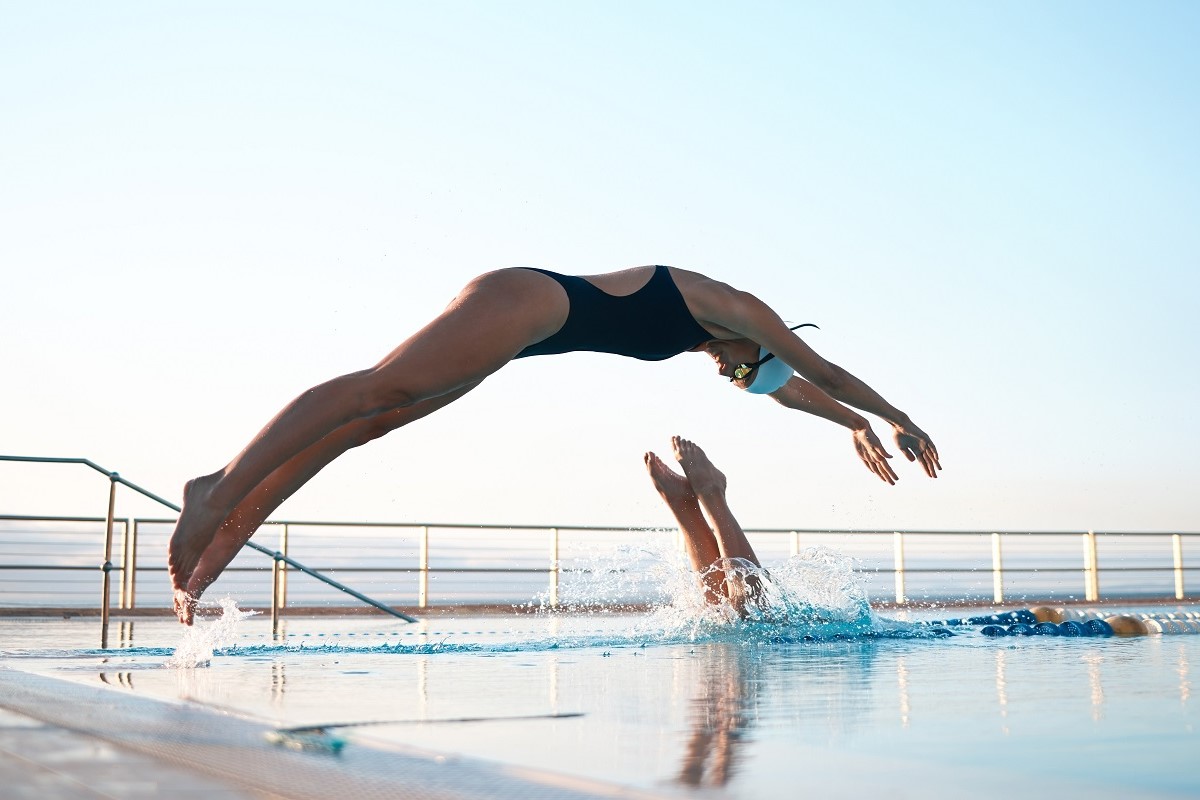Swimming is fun but an equally challenging sport. You need to learn the skills needed in swimming if you want to improve your swimming.
Skills needed in swimming
These can be classified into two categories, water competency, and water safety. Water competency focuses on skills that allow you to improve your swimming technique and govern your behaviour when you are inside the water. On the other hand, water safety skills are vital to maintain a safe environment and prevent any mishaps while being in the water.
When you have learned all these skills, you would not only become a better swimmer but it would also increase your confidence. So, continue reading to find out what are the skills needed in swimming.
Water Competency: Breathing Properly
Having a proper breathing technique is one of the most basic yet important skills to have in swimming. It has a direct effect on your speed and the distance that you can swim. Ideally, your breathing should have a pattern to it and should happen at regular intervals. If you want to improve your breathing, try this simple exercise;
Stand at the edge of the pool with your chest facing towards the wall of the pool.
With your arms outstretched, try to stay afloat in the water
Now push your head underwater and breathe out from your nose and mouth.
Turn your head out of the water sideways, breathe and repeat all over again.
Once you are confident with doing this, you can use a kickboard and move around the pool while repeating the same exercise. With time, you would become better at it and can then implement it while swimming.
Coordination skills
A common problem that most beginner swimmers face is a lack of coordination in their body movement. Guess what, swimming is all about coordinating your actions. Coordination is an essential skill needed in swimming. Improving the coordination between your upper body and lower body would allow you to maintain a streamlined posture and reduce drag. While you are in the water, try to focus on all of your body movements. Also, try to mobilize your lower back and hip muscles to give yourself a forward push.
Diving skills
Diving is another equally important skill that you would use in almost every swimming session. Learning to dive ensures that you safely enter the pool/water. You can begin by putting your hands above your head and slowly curling your body towards the water. It would feel difficult at the start but you should focus on landing your arms first and follow with the rest of your body.
When you feel comfortable, try adding a little jump to your motion. Also, remember not to try or practice diving without the presence of a lifeguard or in a very shallow water.

Sculling skills
Sculling is an advanced swimming skill that helps swimmers to take advantage of water pressure. It is also referred to as “feel” for the water in swimming terms. It enables swimmers to increase their surface area for maximizing thrust and propulsion. It involves maintaining a hand and arm position that helps you to move around the water.
Water Safety: Survival floating
As the name suggests, floating is the most important survival skill needed in swimming. Survival floating is taught to kids and new swimmers so that they can conserve their energy and remain in the water for long periods of time. It drastically reduces the chances of drowning and helps them to stay afloat.
It uses a swim-float-swim mechanism so that they remain above water regardless of how deep the water is. There are four major techniques used in survival floating, horizontal survival float, vertical survival float, back float, and treading water. Drowning is considered to be a major cause of death therefore, learning such a skill is of vital importance.
Water Smarts
Water smarts are a collection of small skills and ideas that can help you to remain safe in the water. It revolves around the idea of respecting water, knowing your limits, and avoiding any behaviour that can lead to an uncertain situation. First and foremost, never dive into unclear or shallow water. Always enter with feet first. Only swim in safe areas where there is no hazard. Do not consume alcohol or drugs before going for a swim and always swim in the presence of a lifeguard or other people.
CPR
Once you have mastered some of the basic swimming skills, you should also learn skills that can keep the people around you safe. Learning CPR would enable you not only to address any uncertain situation near you but would also allow you to remain calm and help others. Alongside CPR, you should also learn other ways to assist people that are facing trouble while being in the water.
Summary of skills needed in swimming
These are a few skills needed in swimming that can help you become a more informed and consistent swimmer. However, as an instructor, I must recommend that you learn as many swimming skills as possible in your next private swimming lessons.
